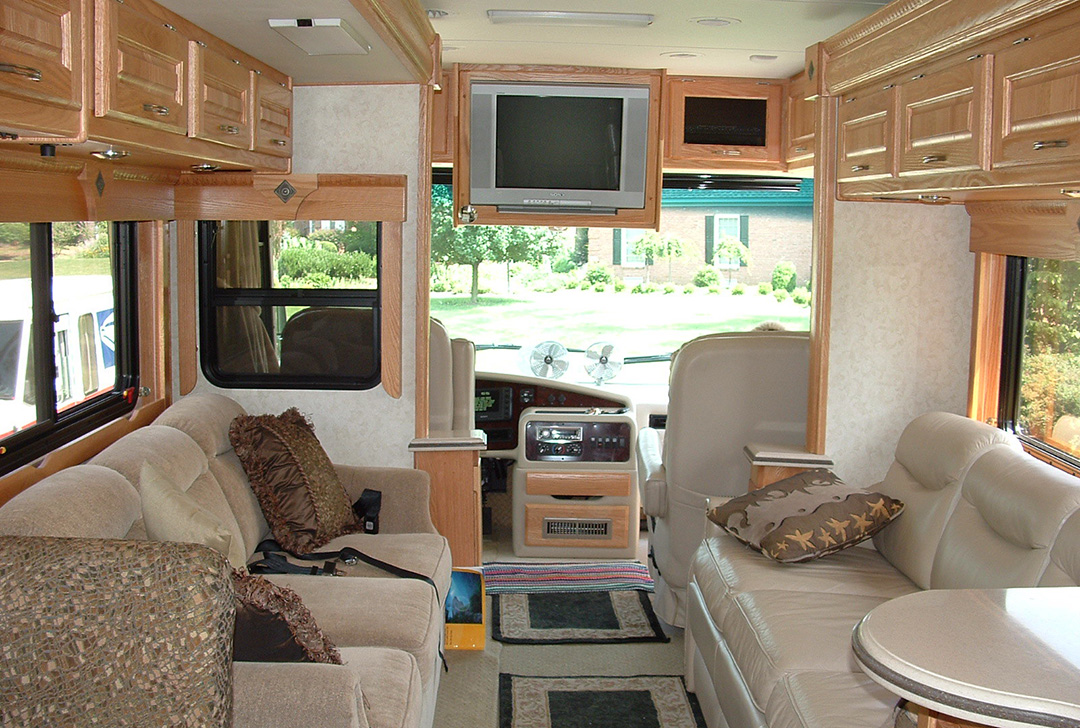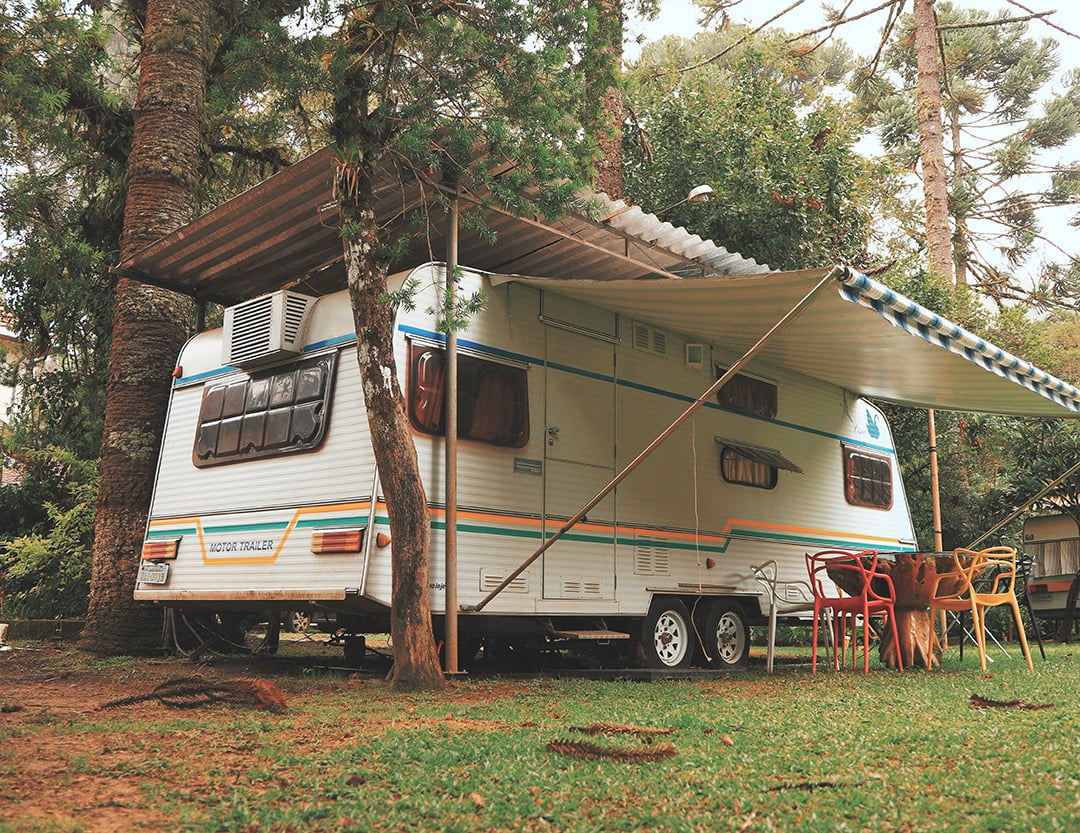Can You Rent Out An RV On Private Property?
With the explosion in popularity of the sharing community, our mobile assets have become potential moneymakers. Companies such as Airbnb, Glamping Hub, and HipCamp have opened up the world to unique camping opportunities. Anyone who owns an RV can be a part of that opportunity.
Renting out an RV on your own property can be a great way to meet new people and make a little money on the side when the RV is not in use. However, check your local laws first.
Renting out an RV can also be beneficial to the renter. They get a temporary and unique way to live—even for a short period of time. This can come in handy when rentals in a specific area are sparse or difficult to obtain.

The comfortable interiors of larger RVs make for wonderful living spaces. Photo: wgossett
Check the local laws and ordinances
However, not every RV owner will be allowed to participate in this type of rental option. It all comes down to legalities.
Even though you may own your land and your RV, your location is still subject to local laws and ordinances. If you want to rent out your RV, you will have to check with your county, city, or other municipality in order to avoid potential fines or other penalties.
There are several reasons for this. Most cities or counties have laws that protect the safety of renters. Since RVs are usually not approved for full-time living, they cannot be used as paid rentals.
Along those lines, RVs also don’t have the typical systems found in a house or apartment. This includes municipal water, power, and septic, which an RV can be hooked up to, but it has not been inspected and approved by a city or county official.
Along with renter’s laws, local zoning may also come into play. Some areas are not zoned for temporary living or camping. Many times, these areas don’t even allow campgrounds or RV parks in some residential areas.
There may be some options for renting out an RV on your property for a short period of time (less than 30 days). This is known as a short term rental and is subject to a whole other set of rules. These rules can be found under a short term rental clause in your state, county, or city ordinances.
The best way to find out if you can rent out an RV on your own land is to contact or look up several departments. If you are located in a city, look up your city’s website and contact the county clerk for updated info on RV rentals. Learn how to find out what zoning district you are in as well.
If you are located in an unincorporated area or county, check your county’s website for local ordinances on RV rentals.
Most importantly, don’t try to “sneak” rent your RV. It only takes one complaint phone call or an angry renter to obtain a fine or worse.
If you are lucky and find out you and your RV are in the clear, there are several ways you can rent out your RV. However, before you list your RV for rent, do one more check with your property insurance to make sure you and your RV are covered as a rental.
How to rent out your RV
The most popular rental sites are Airbnb and Hipcamp, but you can also check out the lesser known Outdoorsy. All these options allow for short term and longer term rentals for stationary RVs.
No matter who you rent to, make sure you let each renter know about the quirks of living or staying in an RV. These are not traditional homes and may not have all the amenities they are used to. Showers are smaller, toilets may be composting or cassette, propane needs to be refilled, and insulation is less than that of a home’s.
Making sure that your renter has a sense of adventure and loves the RV lifestyle will make your rental experience that much easier and a lot more fun.
One of the best parts about RVing is engaging with the community of traveling enthusiasts. iRV2 forums allow folks to chat with other RVers online, and get other perspectives on everything RVing, including products, destinations, RV mods, and much more.
Related articles:


Florida is definitely not a state where you can have an RV, set up on your own property. In most incorporated municipalities, especially ones with an active Code Enforcement staff, you can receive a citation for just having your RV (trailer or motorhome) plugged into your home’s power and water.
Heading further South to Palm Beach, Broward and Miami Dade Counties, you will definitely receive a visit from Code Enforcement.
However, Connecticut, has just passed a law prohibiting enforcement, on single family zoned property, for a second “in-law” living arrangement. But, they don’t just allow it.
The law requires an application to expand the single family zoning to include a second “unit” (anything with a bed a bathroom and a way to cook, is a living unit).
The crazy part is, an application is required to be submitted, but it can not be denied… The Law is called “The Zoning Enabling Act, Accessory Apartments…